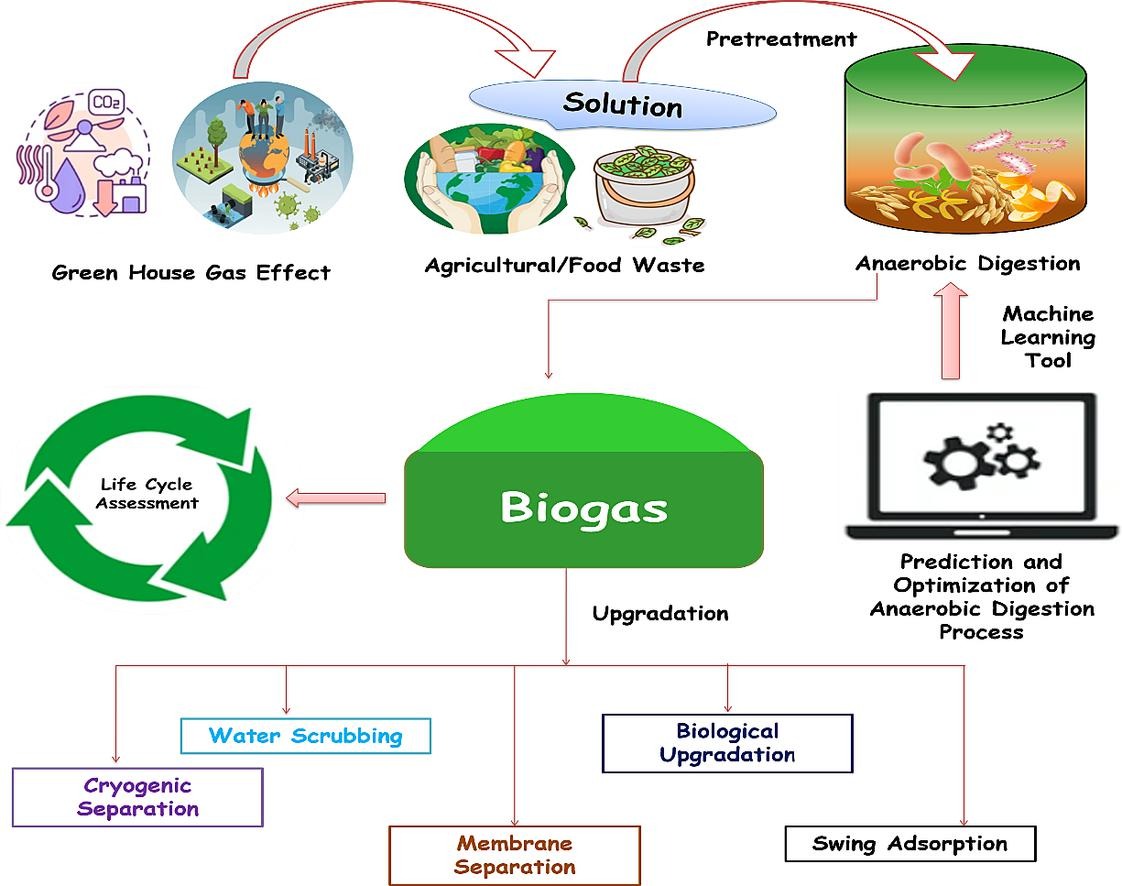December 1, 2023 | Bioresource Technology | Source |
Introduction: Recent years have seen a shift toward a circular economy that utilizes agro-industrial biomass waste to produce energy while reducing trash and greenhouse gas emissions. Biogas production from lignocellulosic biomass (LCB) is a promising alternative for generating clean, renewable fuels. Researchers from the National Kaohsiung University of Science and Technology conducts a review on recent advances.
Key findings: This process involves pretreatment, anaerobic digestion (AD), and upgrading biogas to biomethane. To optimize the biogas production process, machine learning (ML) tools are used for real-time monitoring, predicting, and improving process efficiency. Life cycle assessments (LCA) are essential in evaluating the environmental impacts of biogas production, such as greenhouse gas emissions. The transition to a circular economy in biogas production is supported by the use of agro-waste, which helps achieve sustainable energy goals like those outlined in the United Nations' Sustainable Development Goals (SDGs). However, there are challenges, including technical gaps, financial barriers, and regulatory issues, that need to be addressed. Effective policies, incentives, and technological advancements are crucial to overcoming these challenges and promoting the sustainable development of biogas systems.
Graphical Abstract:






